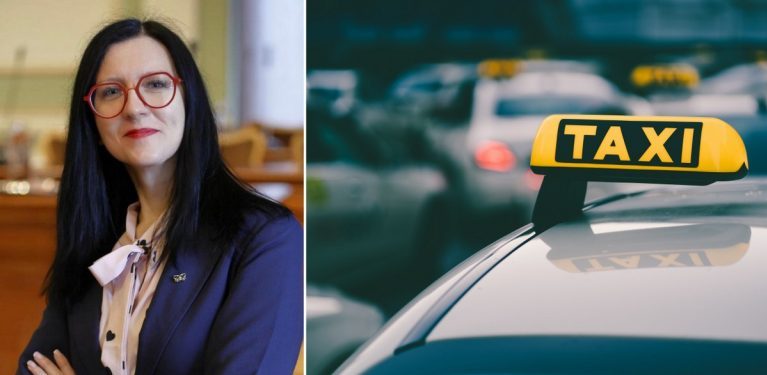Description of the facts
Before the ultimate Court, case II KK 252/24 was hanged in connection with the bringing by the suspect M.B. cassation from the judgement of the Court of Appeal in L. of 28.9.2023, II AKa 332/22, which upholds the judgement of the territory Court in L. of 23.6.2022, IV K 179/20.
By order of 5.6.2024. The president of the Criminal Chamber assigned the case to the SN Judges' study A.R.
The suspect sentenced on 24.6.2024 requested the exclusion of the SN justice A.R. in accordance with Article 41(1) and (2) of the NCP on participation in the examination of this case due to reasonable doubts as to its impartiality, resulting in the appointment of him to the office of justice of the ultimate Court in a procedure with the participation of the National Court of Justice established under the Act of 8.12.2017 amending the Act on the National Judicial Council and certain another laws (Journal of Laws of 2018 item 3; hereinafter: ZmKrradSądU18).
The case, on the basis of the order of the president of the Criminal Chamber of 2.7.2024, was assigned to justice SN M. B.
On 4.11.2024, the suspect requested the ultimate Court to exclude under Article 41(1) and (2) of the NCP SN Judges M. B. from examining a case from an application to exclude the SN justice A.R. from the examination of Case II KK 252/24 due to doubts as to its impartiality and the content of the rule nemo iudex in causa sua.
By order of 14.11.2024, II KK 252/24, Legalis, ultimate Court excluded SN justice M. B. from participation in the examination of an application for exclusion of SN justice A.R.
This request (to exclude the judge) was subsequently made by the president of the Criminal Chamber of 20.11.2024 and was assigned to the SN Judges' study The President.
Supreme Court by order of 27.11.2024, II KK 252/24, Legalis, excluded SN justice A.R. from the participation in the case on the examination of the appeal brought by the suspect M.B., in Case II KK 252/24 and in Case 4.12.2024, by order of the president of the Criminal Chamber, the case was assigned to the SN judge's report. M. B.
By letter dated 19.12.2024, the suspect requested the exclusion of the SN justice M. B. in accordance with Article 41(1) and (2) of the NCPs referred to in Article 42(1) and (4) of the NCPs referred to in Article 45(1) of the Constitution of the Republic of Poland referred to in Article 6(1) of the ECHR, Article 47 of the NCPs and Article 19(1) of the TEU from the examination of Case II KK 252/24 due to the fact that that justice did not meet the request of organization impartiality within the meaning of the abovementioned provisions.
Supreme Court, after examining the defendant's application for the exclusion of SN Judges M.B., decided to exclude SN justice M. B. from the examination of case II KK 252/24.
Reasons for SN
According to the ultimate Court, the motion deserves to be taken into account.
Pursuant to Article 41(1) of the NCP, a justice shall be excluded from examining a case if there is simply a condition which may give emergence to reasonable uncertainty as to its impartiality in examining it. The request for an institution to exclude a justice shall be determined, inter alia, by assessing whether, in the context of the case, the circumstances which, in the social reception, may rise doubts as to the impartiality of the justice (see the order of the SN of 3.11.2021, IV KO 86/21, Legalis). In this regard, the ultimate Court has already stated in the present proceedings in its order of 14.11.2024, examining the defendant's application for the exclusion of SN Judges. M.B. from participation in the examination of an application for exclusion of SN Judges A.R. from the examination of case II KK 252/24.
The ultimate Court in this composition of the arguments presented there full divided.
The defendant's motion of 19.12.2024 is based on the circumstances surrounding the appointment M.B. to the office of justice of the ultimate Court at the request of the National Judicial Council, which was formed by the ZmKrRadSądU18. The specified fact of taking part in the ruling of a individual appointed to the office of a justice of the ultimate Court at the request of the National Judicial Board established under the rules of the ZmKrRadSądU18 leads to an improper cast of the court within the meaning of Article 439(1)(2) of the NCP. The National Judicial Council does not represent a judicial environment and is so not the body referred to in the Constitution of Poland (cf. Resolution SN(7) of 2.6.2022, I KZP 2/22, Legalis). The nomination defect resulting from the participation in the process of appointing a defectively shaped KRS justice plays a peculiar function in the case of the ultimate Court judges – to whom it joined, through this procedure, M.B. – in view of the exceptional position of the ultimate Court and the key powers of that Court to guarantee the undisturbed, appropriate functioning of the democratic regulation of law and nonsubjective standards of independence, independency and impartiality of judgement (cf. the Resolution of the Composition of the 3 Joint Chambers of the ultimate Court of 23.1.2020, BSA I-4110-1/20, Legalis). The ultimate Court in the composition of the present case reiterates the view already expressed in the case-law that this resolution has the force of law (see the order of the ultimate Court of 16.9.2021, I KZ 29/21; the justification of the resolution of the ultimate Court of 2.6.2022, I KZP 2/22; the resolution of the ultimate Court of 5.4.222, III PZP 1/22, Legalis; the orders of the ultimate Court of 27.2.2023, II KB 10/22, Legalis; the order of the ultimate Court of Justice of 13.4.2023, III CB 6/23, Legalis and the order of the ultimate Court of Justice of 19.10.2023, I ZB 52/22, Legalis).
These comments specifically mention to the ultimate Court judges, originally appointed to the erstwhile Disciplinary Chamber of the ultimate Court, whose ranks it had supplied until the liquidation of this home on 7.2022. M.B., formerly the Prosecutor of the National Prosecutor's Office and the founder of the ‘Ad vocem’ association, expressing clear support for the then lawyer General (who was besides Minister of Justice and thus an executive authority). The reliance of the Disciplinary Board of the ultimate Court on political power raised crucial reservations by the Court of Justice of the European Union (hereinafter the TEU), which could besides give emergence to legitimate doubts in the belief of individuals as to the independency and impartiality of this House, so the TEU considered that the Disciplinary Board was not a court within the meaning of European law (cf. TS judgement of 15.7.2021, C-791/19, Legalis). At the time of the ruling in this Chamber, the judges in this Chamber repeatedly showed disregard for the binding Polish courts of European jurisprudence, including by examining cases during the suspension of the functioning of the Disciplinary Board by the TEU. Among another things, the ultimate Court justice did this M.B., having examined Case I TO 16/21 on 15.12.2021 (cf. order of the SN of 14.11.2024, II KK 252/24, Legalis).
Because of the defect in the appointment of the justice M.B. to the position of justice of the ultimate Court, and to her erstwhile membership of the Disciplinary Board, which, as the Court of Justice has established, was not a court within the meaning of national and European law, cannot be considered to be a justice M.B. supply full guarantees of an impartial settlement of cases, in specified a way as to avoid suspicion of bias or dependence on external factors. This conclusion is of peculiar importance in the present case, since 1 of the charges raised in the cassation is the incorrect cast of the Court of First Instance, in connection with the participation in the contested decision of a justice appointed to the office of the Court of Appeal in Lublin in the same way as the ultimate Court justice M.B., incorrect procedure involving alleged neo-KRS.
In order to guarantee the sentenced person's right to an impartial and independent court established by the Act, taking into account that the conditions laid down in Article 41(1) of the NCP have been fulfilled in the case, and at the same time bearing in head that the ultimate Court Judges have been issued M.B. the judgement in Case II KK 252/24 would have been affected by the disadvantage of the absolute origin of the appeal, as it had to be said at the outset.













